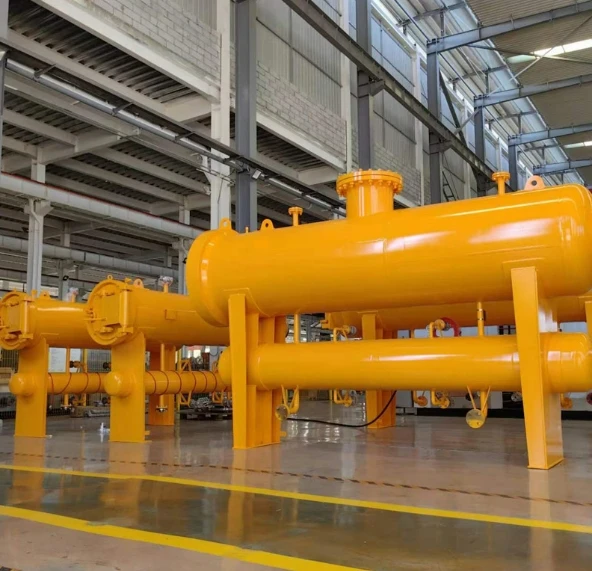
Nov . 07, 2024 05:33
Back to list
filter separator
Understanding Filter Separators A Key Component in Industrial Processes
Filter separators are crucial devices in various industrial processes, particularly in the oil and gas sector. Their primary function is to separate liquids from gases while also filtering out particulate matter. This process is essential for ensuring that the gases being processed are clean and free from contaminants, which can affect downstream operations and the quality of the end products. In this article, we will explore how filter separators work, their applications, and the benefits they provide.
At the heart of a filter separator is the principle of separation based on density differences. When a mixture of gas and liquid enters the separator, the gas tends to rise due to its lower density, while the liquid phases settle at the bottom. Typically, filter separators contain a series of baffles or plates that help facilitate this separation. The design of these separators can vary greatly, depending on the specific requirements of the application and the properties of the fluids being processed.
One of the primary functions of filter separators is to remove water and solid particles from natural gas. In many scenarios, natural gas extracted from the ground contains water vapor and solid impurities. If not removed, these contaminants can lead to corrosion in pipelines and equipment, resulting in costly repairs and downtime. By using filter separators, companies can improve the purity of the gas, enhance processing efficiency, and prolong the lifespan of their equipment.
filter separator

In addition to their use in natural gas treatment, filter separators are also employed in various other fields, such as chemical processing, petrochemicals, and power generation. They play a vital role in maintaining the quality of products by ensuring that they are free from unwanted solids and liquids. This not only helps in meeting regulatory standards but also improves product reliability and customer satisfaction.
The benefits of using filter separators extend beyond just separation and filtration. They also contribute to environmental conservation by minimizing waste and ensuring that harmful substances do not enter the atmosphere or water systems. Moreover, by optimizing the efficiency of production processes, organizations can reduce energy consumption, thereby lowering their overall carbon footprint.
In conclusion, filter separators are an integral part of many industrial processes, serving vital functions in the separation and filtration of gases and liquids. Their ability to enhance operational efficiency, protect equipment, and ensure product quality makes them indispensable in various sectors. As industries continue to evolve, the importance of effective filtration and separation technologies, such as filter separators, will only grow, reinforcing their role in sustainable industrial practices.
Latest news
-
Safety Valve Spring-Loaded Design Overpressure ProtectionNewsJul.25,2025
-
Precision Voltage Regulator AC5 Accuracy Grade PerformanceNewsJul.25,2025
-
Natural Gas Pressure Regulating Skid Industrial Pipeline ApplicationsNewsJul.25,2025
-
Natural Gas Filter Stainless Steel Mesh Element DesignNewsJul.25,2025
-
Gas Pressure Regulator Valve Direct-Acting Spring-Loaded DesignNewsJul.25,2025
-
Decompression Equipment Multi-Stage Heat Exchange System DesignNewsJul.25,2025

